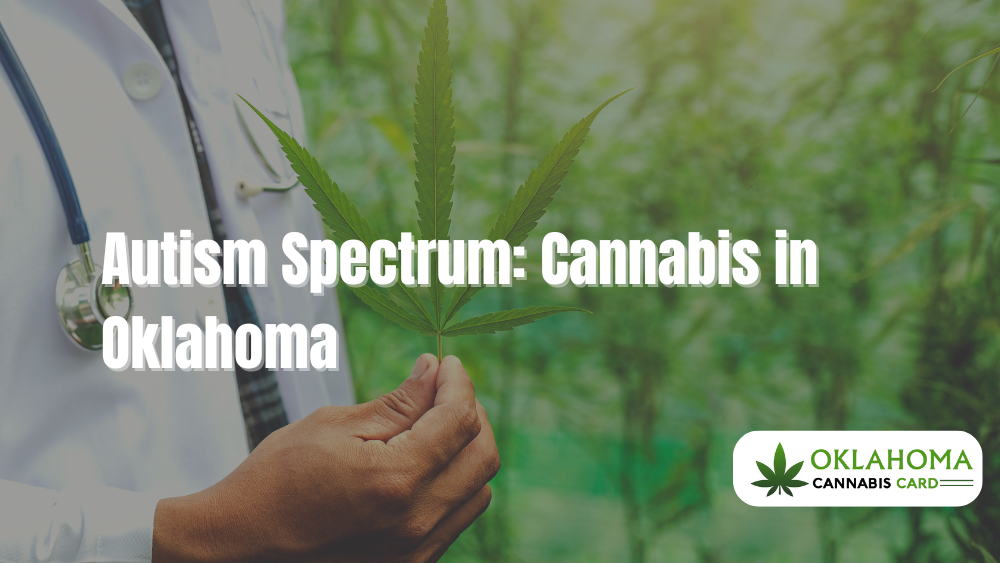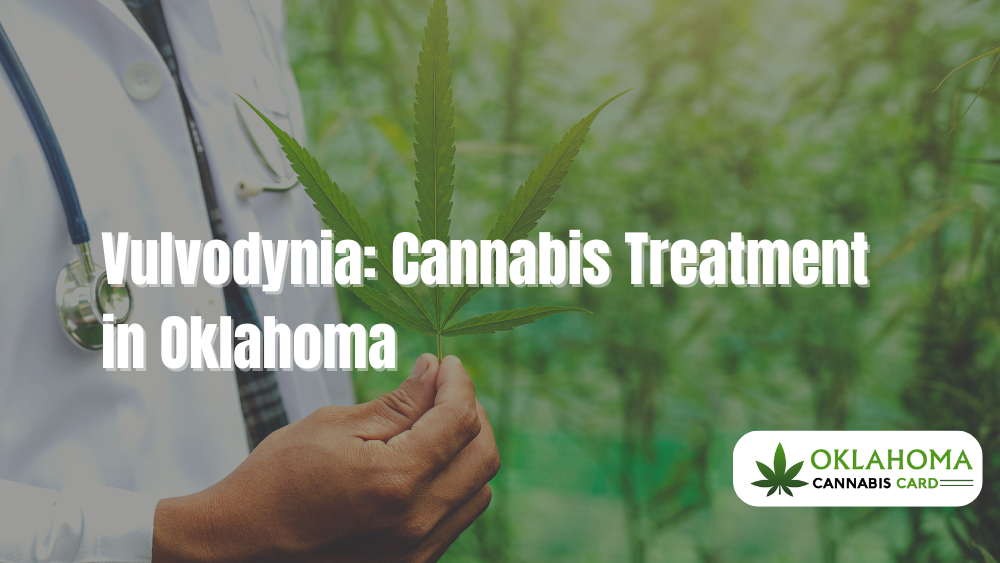Navigating the medical marijuana landscape in Oklahoma can be complex. As a healthcare professional, understanding the qualifications for a medical card is crucial.
This article aims to provide a comprehensive guide on the qualifying conditions for a medical card in Oklahoma. It’s designed to help you effectively guide your patients through the process.
We’ll delve into the legal framework governing medical marijuana in the state. We’ll also discuss your role in the certification process.
We’ll provide a detailed list of qualifying conditions. We’ll also explain the importance of a physician’s recommendation in obtaining a medical card.
By the end of this article, you’ll have a clearer understanding of the medical card qualifications in Oklahoma. This knowledge will empower you to better assist your patients in their healthcare journey.
Table OF Content
- 1 Understanding Oklahoma’s Medical Marijuana Program
- 2 Comprehensive List of Qualifying Conditions
- 3 The Application Process for a Medical Card
- 4 Possession and Renewal Regulations
- 5 Patient Outcomes and Ongoing Research
- 6 Ethical Considerations and Continuing Education
- 7 Conclusion: Integrating Medical Marijuana into Patient Care
Understanding Oklahoma’s Medical Marijuana Program
Oklahoma’s medical marijuana program, established in 2018, allows qualifying patients to use cannabis for therapeutic purposes. The program is regulated by the Oklahoma Medical Marijuana Authority (OMMA).
Patients must meet specific criteria to qualify for a medical card. These criteria are based on a list of qualifying conditions, which we’ll discuss in detail later.
The program also sets regulations on the amount of medical marijuana a cardholder can possess. Here are the key points:
- Cardholders can possess up to 3 ounces of marijuana on their person.
- At their residence, they can have up to 8 ounces.
- They can also have six mature plants and six seedlings.
Understanding these regulations is essential for healthcare professionals. It allows you to provide accurate information to your patients.
The Legal Framework and Healthcare Professional’s Role
The legal framework for medical marijuana in Oklahoma is defined by State Question 788. This legislation outlines the rights and responsibilities of patients, caregivers, and healthcare professionals.
As a healthcare professional, your role is pivotal in the medical marijuana certification process. You are responsible for evaluating patients and determining if they meet the qualifying conditions.
Your recommendation is a crucial part of the application process for a medical card. It’s your responsibility to ensure that your recommendation is based on a thorough evaluation and is in the best interest of the patient.
Comprehensive List of Qualifying Conditions
The list of qualifying conditions for a medical card in Oklahoma is broad and inclusive. It covers a wide range of health conditions, making medical marijuana accessible to many patients who may benefit from its therapeutic effects.
The list includes, but is not limited to:
- Chronic pain
- Severe nausea
- Epilepsy and other seizure disorders
- Multiple sclerosis
- Post-traumatic stress disorder (PTSD)
- Cancer
- Glaucoma
- HIV/AIDS
- Crohn’s disease
- Parkinson’s disease
It’s important to note that this list is not exhaustive. The law allows physicians to recommend medical marijuana for any condition they believe it could benefit.
The Importance of a Physician’s Recommendation
A physician’s recommendation is a critical component of the medical card application process. It serves as a testament to the patient’s need for medical marijuana as a therapeutic intervention.
The recommendation should be based on a comprehensive evaluation of the patient’s health status and medical history. It should also consider the potential benefits and risks of medical marijuana use for the patient’s specific condition. This underscores the importance of your role as a healthcare professional in guiding your patients through this process.
The Application Process for a Medical Card
The application process for a medical card in Oklahoma is straightforward. It begins with a consultation with a licensed physician who can recommend medical marijuana based on a qualifying condition.
Once the physician’s recommendation is obtained, the patient can apply for a medical card through the Oklahoma Medical Marijuana Authority (OMMA). The application is completed online and requires a fee.
Required Documentation for Application
The application for a medical card requires several documents. These include proof of Oklahoma residency, proof of identity, a clear, color, full-face digital photograph, and the physician’s recommendation form.
It’s also important to note that patients under 18 years of age need two physician recommendations and their parent or legal guardian must serve as their caregiver. As a healthcare professional, guiding your patients through this process can help ensure they have all the necessary documentation, reducing potential delays or complications.
Possession and Renewal Regulations
In Oklahoma, a medical card holder is allowed to possess up to three ounces of marijuana on their person. They can also have eight ounces at their residence, six mature plants, and six seedling plants. The card is valid for two years and must be renewed before expiration.
Medical Marijuana Reciprocity in Other States
Oklahoma has a medical marijuana reciprocity policy, allowing out-of-state medical marijuana patients to apply for a temporary patient license. This license is valid for 30 days, but can be renewed. However, it’s important to note that not all states reciprocate Oklahoma’s medical marijuana laws.
Patient Outcomes and Ongoing Research
Research into the efficacy of medical marijuana for various health conditions is ongoing. However, preliminary studies and anecdotal evidence suggest that it can significantly improve patient outcomes for certain qualifying conditions. For instance, it has been found to be effective in managing chronic pain, reducing seizures in epilepsy, and alleviating symptoms in multiple sclerosis.
Potential Risks and Safe Use of Medical Marijuana
While medical marijuana has potential therapeutic benefits, it’s not without risks. Side effects can include dizziness, impaired memory, and dependency. It’s crucial for healthcare professionals to educate patients about these risks and ensure safe use. This includes discussing potential interactions with other medications, appropriate dosage, and strain selection. It’s also important to monitor patient use and adjust treatment plans as necessary.
Ethical Considerations and Continuing Education
Healthcare professionals play a crucial role in the medical marijuana certification process. They must balance the potential benefits of medical marijuana with ethical considerations, such as the risk of misuse or dependency. This requires a deep understanding of the pharmacology of cannabis and its compounds, as well as the latest research and regulations.
Continuing education is key to staying updated with the evolving landscape of medical marijuana. This includes understanding the legal implications of recommending medical marijuana, recognizing signs of misuse, and being aware of the latest research and clinical guidelines.
Federal Laws and Prescribing Practices
Despite the legalization of medical marijuana in Oklahoma, it remains illegal under federal law. This can create challenges for healthcare professionals, who must navigate the complexities of prescribing a substance that is still classified as a Schedule I drug at the federal level. It’s crucial for healthcare professionals to understand these legal nuances to ensure compliance and protect their patients.
Conclusion: Integrating Medical Marijuana into Patient Care
In conclusion, integrating medical marijuana into patient care in Oklahoma requires a comprehensive understanding of the qualifying conditions, legal framework, and ethical considerations. Healthcare professionals play a pivotal role in this process, guiding patients through the application process, educating them on safe use, and monitoring their treatment outcomes.





